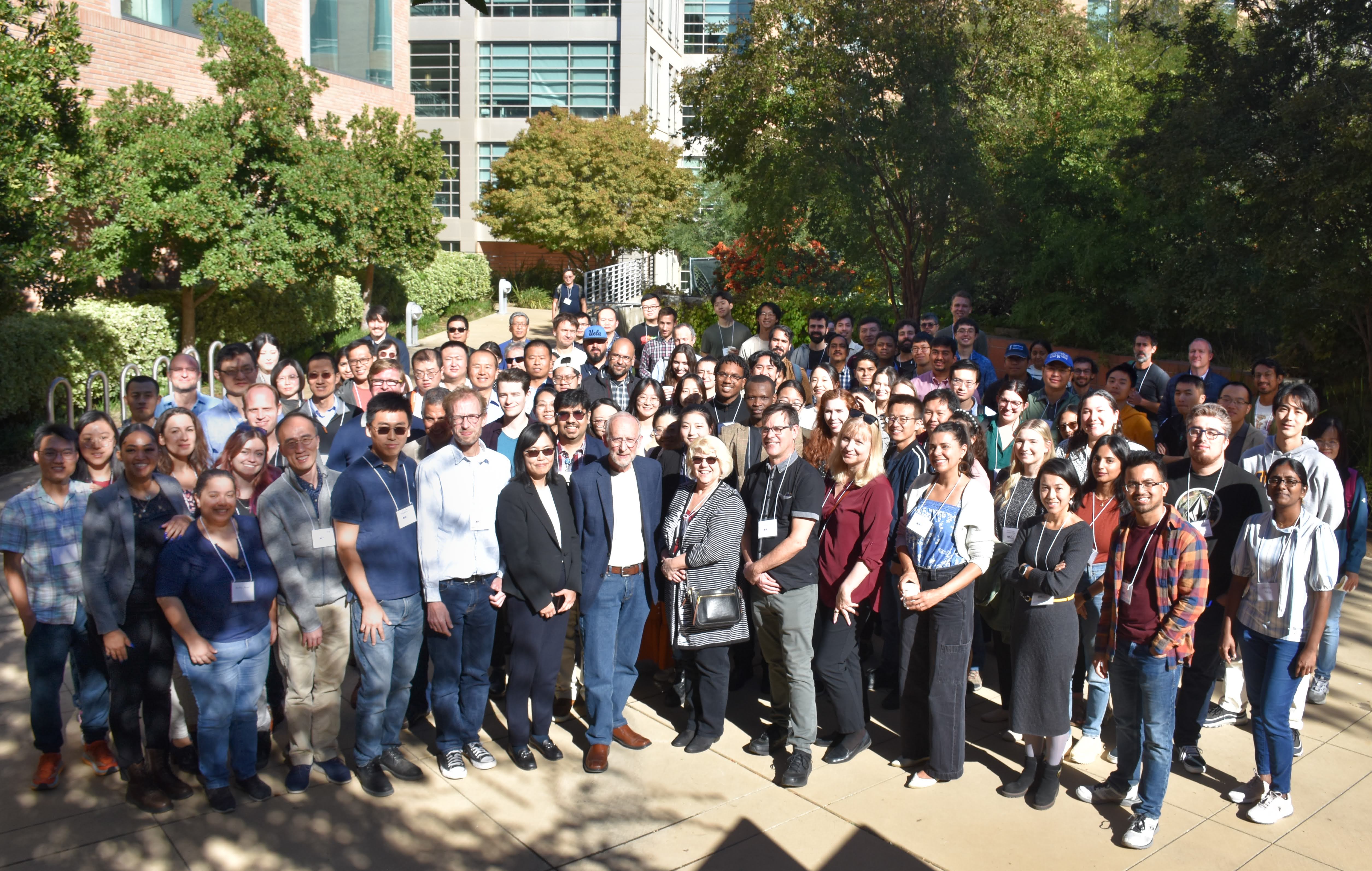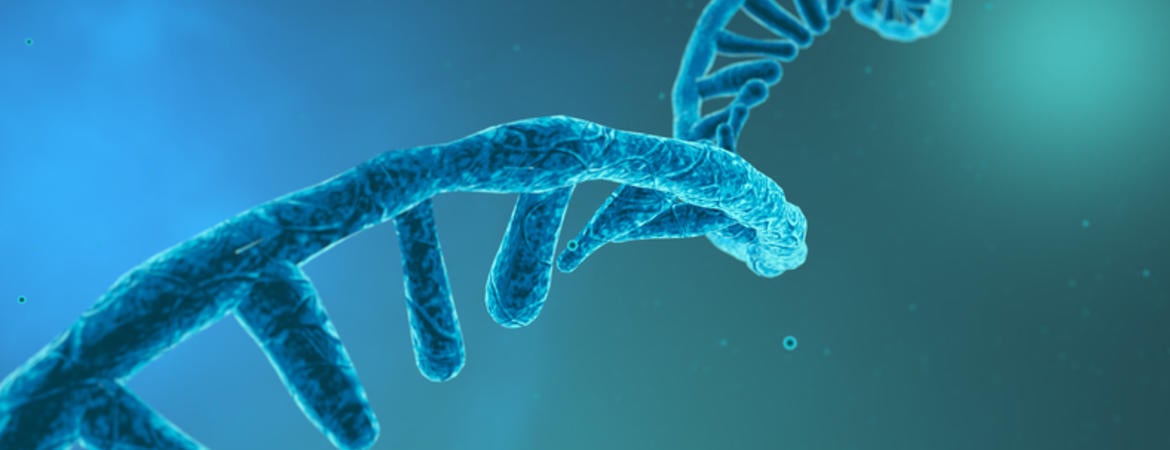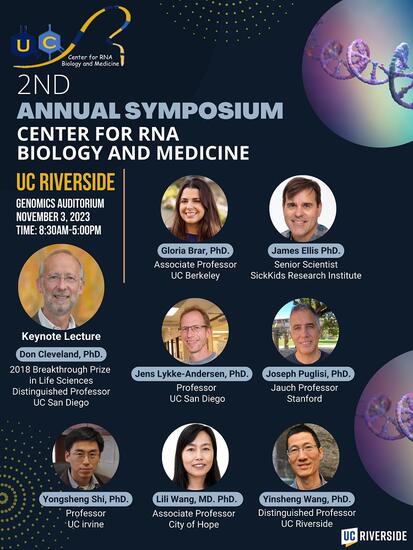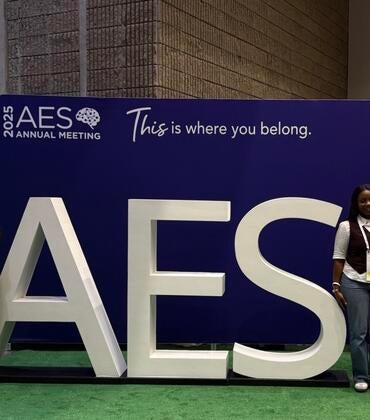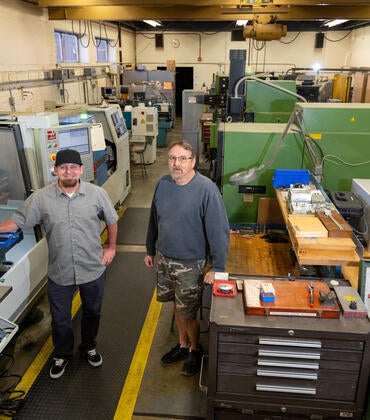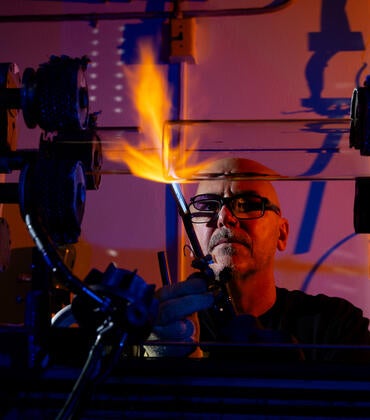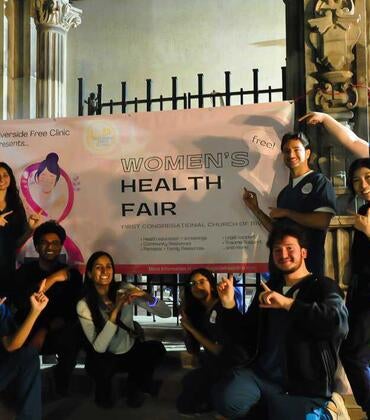The Center for RNA Biology and Medicine, which was launched on campus last year, held its second annual RNA symposium on Nov. 3, 2023, bringing together prominent external investigators in the RNA-research community. Promoting research and collaborations, the symposium attracted 222 registrants.
“The symposium serves as a major platform for celebrating remarkable discoveries and the dedicated scientists behind them,” said Sika Zheng, founding director of the Center for RNA Biology and Medicine and a professor of biomedical sciences in the School of Medicine. “The presentations were exceptional, with actively engaged trainees and stimulating Q&A sessions. Moreover, the scientific discussions continued throughout, and extended well beyond, the symposium.”
Most often single-stranded, RNA is the lesser-known cousin of the double-stranded DNA. It is, however, important to basic cell biology and for diagnosing human disease. In his opening remarks at the symposium, Rodolfo Torres, vice chancellor for research and economic development at UCR, said “RNA is at the forefront of cutting-edge research these days.”
“The knowledge in this field is fundamentally changing our approaches to medicine, as well as environmental and industrial problems,” he said. “For example, mRNA vaccines, CRISPR, and more.”
The symposium connected center members, including trainees, with internationally renowned researchers in the field of RNA biology and medicine. It offered attendees the opportunity to learn and share cutting-edge research in RNA biology. Attendees, including students and postdoctoral researchers, got to network with experts and community stakeholders.
The keynote lecture was given by Don Cleveland, a distinguished professor of cellular and molecular medicine at UC San Diego and recipient of the 2018 Breakthrough Prize in life sciences or mathematics.
The Center for RNA Biology and Medicine plays an important role in growing the RNA research community at UCR and boosting its visibility. The center facilitates interdisciplinary interactions, promotes fundamental science discoveries, and enhances the research portfolio and education mission of the university. Additionally, it fosters collaborations with the RNA community outside the UCR campus.
